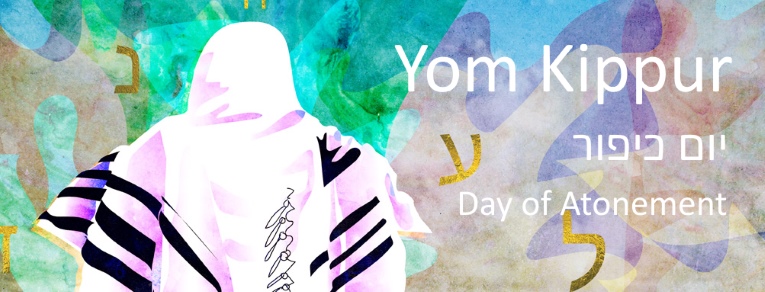Mercy Mondays: Celebrating Yom Kippur, mercy in the Jewish tradition

From the very beginning of time, HaShem, the Hebrew name for God, has shown his people mercy. In Genesis 3:21, it reads, “The Lord God made garments of skin for Adam and his wife and clothed them.” Here HaShem shows God’s mercy to Adam and Eve for their blatant sin of disobedience to him.
There are numerous other examples of God’s mercy in the Pentateuch, where HaShem continues to share mercy freely and without reservation. Another example of God’s mercy is when Moses intercedes for Israel and HaShem relents from consuming the nation in Exodus 32:11-14. Through these different verses in Scripture, one can see that God’s mercy has much to do with showing compassion, love, kindness, forgiveness and much more.
Dr. Myra Edelstein, associate professor of business, remembered her childhood and how mercy was taught to her in her Jewish home.
“I was raised in a Jewish home where I was taught that HaShem is forgiving and merciful,” she shared. “HaShem holds the power of forgiveness for all who seek atonement — no matter how terrible the sin. And while HaShem is merciful, it is up to each and every one of us to recognize our own sins and ask for forgiveness — forgiveness and mercy are neither automatic nor guaranteed!”
Dr. Edelstein later spoke of a situation of a friend who was in a troubled situation, and Dr. Edelstein sought advice from her rabbi and the rabbi’s wife. The rabbi assured her that if someone is guilty and sincerely repentant, anybody can be redeemed. “You should not shun friends because they have done something bad or wrong,” Dr. Edelstein recalled the rabbi saying.
This is where the celebration of Yom Kippur, or Day of Atonement, comes in. Traditionally, it is a day set aside to afflict the soul to atone for the sins of the past year and to ask for the mercy of HaShem.
“It is a time period in which we seek the mercy and forgiveness of God,” said Dr. Emily Colbert Cairns, associate professor of Spanish. “It’s a time where we are called to look at how we can improve our lives, where we can do better. If we have done any wrong doings, we can ask God for mercy.”
In preparation for Yom Kippur, asking for and accepting HaShem’s forgiveness, there are a set of prayers called the Selichot prayers that are recited. These can be found in the Exodus 34:6-7, and they are considered the 13 Attributes of Mercy — the very words that God taught Moses for the people to use whenever they needed to beg for divine compassion.
In this pericope, someone can see that God’s mercy reassures that repentance is always possible, and that God always awaits a person’s return. This is a belief that both Catholicism and Judaism share, and it is apparent that mercy in the Jewish Tradition is really the roots for mercy in the Christian tradition.
God’s mercy truly is universal. Salve Regina University has a diverse faith community, one where the mercy of God can be experienced and encountered in numerous ways. Both Dr. Edelstein and Dr. Colbert Cairns see the mercy tradition here as one that is shared with their faith.
Dr. Edelstein says one of the reasons she was drawn to Salve Regina was because of the mission to help make the world more harmonious, just and merciful. Since her childhood, her mother taught her the importance of learning from people who had a life experience that was different from her own. She likens this lesson to Yom Kippur. “[It’s] an outward expression of mercy — a way to bring people together in a harmony and understanding.”
May everyone at Salve Regina all take a moment to remember on this Jewish high holiday that each one in this community is called to seek to make the world a more harmonious, just and merciful place.
By Father Scott J. Pontes, University Chaplain
This post is part of an ongoing series called Mercy Mondays that highlights Salve Regina’s dedication to its Mercy Mission. Search the tag Mercy Mission for more updates on the Mercy branches of Salve Regina.



